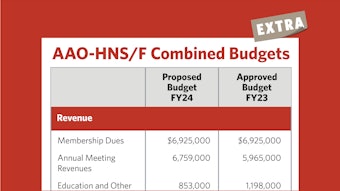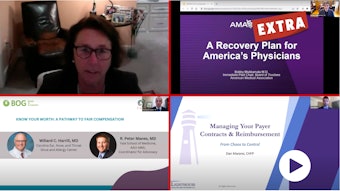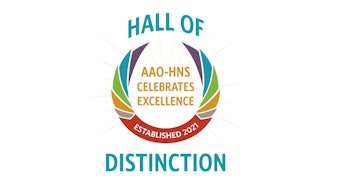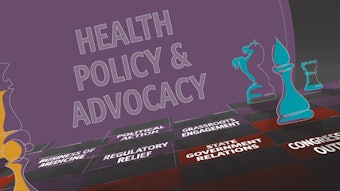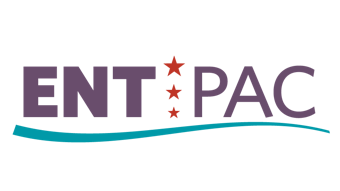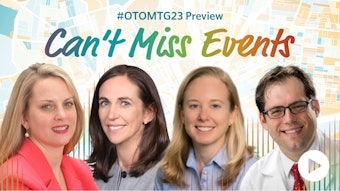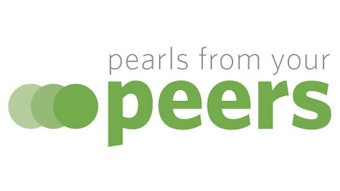A Primer for Improving the Quality and Accessibility of Medical Student Research in Otolaryngology
The authors discuss methods to increase early medical student involvement in otolaryngology research, to enhance the quality of database research, and to improve accessibility to research by diverse communities.
Philip R. Brauer, BA; Patrick J. Byrne, MD, MBA; Paul C. Bryson, MD, MBA; and Eric D. Lamarre, MD

Enhancing the Quality of Medical Student Otolaryngology Research
The importance of improving database research is underscored by the degree to which national otolaryngology guidelines rely on this evidence for questions that cannot be addressed by randomized controlled trials.2 Medical students are the main drivers of such research because they have greater flexibility in terms of research time and are highly motivated. We believe that the key to improving the quality of medical student research is starting research as a first-year medical student (M1) and using that time to promote responsible analysis of the data. Starting as an M1 means there is time both to learn about the specific limitations of each database and to ask clinically meaningful questions. This is particularly true given the transition of Step 1 to pass/fail, which expands the time available to formulate clinically meaningful questions using the correct database.
Research mentors can play a pivotal role in enhancing the quality of research by questioning students on the relative value of a database. With the increasingly large number of big datasets available,3 the onus should be on the medical student to master their specific databases and to use them responsibly. However, mentors should provide critical inquiry to counteract the motivation to publish as quickly as possible. With the availability of time in M1/M2, research mentors can use this time to directly improve the quality of research.
Increasing M1 Medical Student Involvement in Otolaryngology Research
The majority of students start medical school with little experience in clinical research. However, many quickly learn that research productivity has been proven to correlate with success in the Match, and most medical schools have a research requirement for graduation.4 The potential value of research has been amplified by the transition of Step 1 to pass/fail, which inherently emphasizes other portions of the application such as research. In this way, medical students are motivated to participate in research, but many don’t know where to start.
We propose that academic otolaryngologists take a twofold approach to addressing this problem. First, host a lecture at the beginning of the M1 year focusing on the scope of otolaryngology and also directly addressing the importance of research in successfully matching and in providing evidence-based care.4 Second, set up a formal otolaryngology research group with sign-ups available at the end of the M1 lecture. There are many models for a successful research group, but important core principles include fostering research skills and regular meetings. One of the best ways to teach research skills is to compile standardized resources that specifically explain the process of turning a hypothesis into a publication. These resources are already widely available, and this method is accessible to medical students at any institution.5,6 A potential barrier to improving the quality of medical student research is attrition, which can be minimized by having a formal research group that meets regularly. The research groups should be akin to the setup of specialty-specific tumor boards. The regularity of the research meeting combined with a predetermined agenda covering all ongoing projects in a timely manner is critical to creating a successful environment for research.
Improving Accessibility to Otolaryngology Research
Improving accessibility to otolaryngology research is important for improving diversity, equity, and inclusion (DEI) in our field.7 Not all institutions have access to large databases, and previous research has shown that medical students in underrepresented groups have significantly lower publication rates, which are even more pronounced at non-top National Institutes of Health-funded schools.8 We propose taking advantage of publicly available datasets as a way to enhance accessibility to otolaryngology research. Any medical student at any university can utilize these datasets. There are hundreds of publicly available datasets through the U.S. government, and these datasets have been used to answer a wide variety of clinically relevant questions in otolaryngology.3,9,10 Additionally, institutions may allow for expedited institutional review board approval due to the publicly available nature of the data, which leaves more time to conduct high-quality research. We believe that public datasets are an untapped and valuable means for improving both the quality of research and DEI in otolaryngology.
Future Implications for Clinical Research Fellowships: The Future or the Past?
Due to the increasingly competitive nature of otolaryngology, it is likely that students will continue to take research years. Entering into a clinical research fellowship without prior experience in clinical research can be an uphill battle against the clock. Alternatively, medical students who participated in clinical research starting in M1 will have the knowledge base necessary to produce a higher quality, if not quantity, of literature. Ultimately, we hope this will translate into residents and attending otolaryngologists who truly understand how to use large datasets responsibly to advance the practice of evidence-based healthcare.
Conclusion
The otolaryngology community stands on the brink of a transitionary period as medical student involvement in clinical research is set to increase. We need to take a proactive approach to improving the quality of research. This can be accomplished through formalized research groups and earlier exposure to clinical research. The availability of public datasets also has the potential to improve accessibility to research and to facilitate greater DEI in our field. We hope that the education strategies outlined in our commentary will help improve the quality of medical student research in otolaryngology.
References
- Collins TR. The benefits and drawbacks of using big data in otolaryngology research. ENTtoday. Published November 17, 2021. Accessed January 17, 2023. https://www.enttoday.org/article/the-benefits-and-drawbacks-of-using-big-data-in-otolaryngology-research/3/?singlepage=1.
- Rosenfeld RM, Tunkel DE, Schwartz SR, et al. Clinical practice guideline: tympanostomy tubes in children (update). Otolaryngol Head Neck Surg. 2022;166(1_suppl):S1-S55.
- HealthData.gov. Accessed January 17, 2023. https://healthdata.gov.
- Thangamathesvaran L, M Patel N, Siddiqui SH, et al. The otolaryngology match: a bibliometric analysis of 222 first-year residents. Laryngoscope. 2019;129(7):1561-1566.
- Cook JA, Collins GS. The rise of big clinical databases. Br J Surg. 2015;102(2):e93-e101.
- Jubbal K. Stand out in research (for med school and residency apps). Published July 14, 2020. Accessed March 4, 2023. https://www.youtube.com/watch?v=H9aMenyBdkk.
- Ortega CA, Keah NM, Dorismond C, et al. Leveraging the virtual landscape to promote diversity, equity, and inclusion in otolaryngology-head & neck surgery. Am J Otolaryngol. 2023;44(1):103673.
- Nguyen M, Chaudhry SI, Asabor E, et al. Variation in research experiences and publications during medical school by sex and race and ethnicity. JAMA Netw Open. 2022;5(10):e2238520.
- Thai A, Khan SI, Choi J, Ma Y, Megwalu UC. Associations of hearing loss severity and hearing aid use with hospitalization among older US adults. JAMA Otolaryngol Head Neck Surg. 2022;148(11):1005-1012.
- Brauer PR, Lamarre ED, Gau VL, Lorenz RR, Wu SS, Bryson PC. Laryngology outcomes following implantable vagus nerve stimulation. JAMA Otolaryngol Head Neck Surg. 2023;149(1):49-53.





